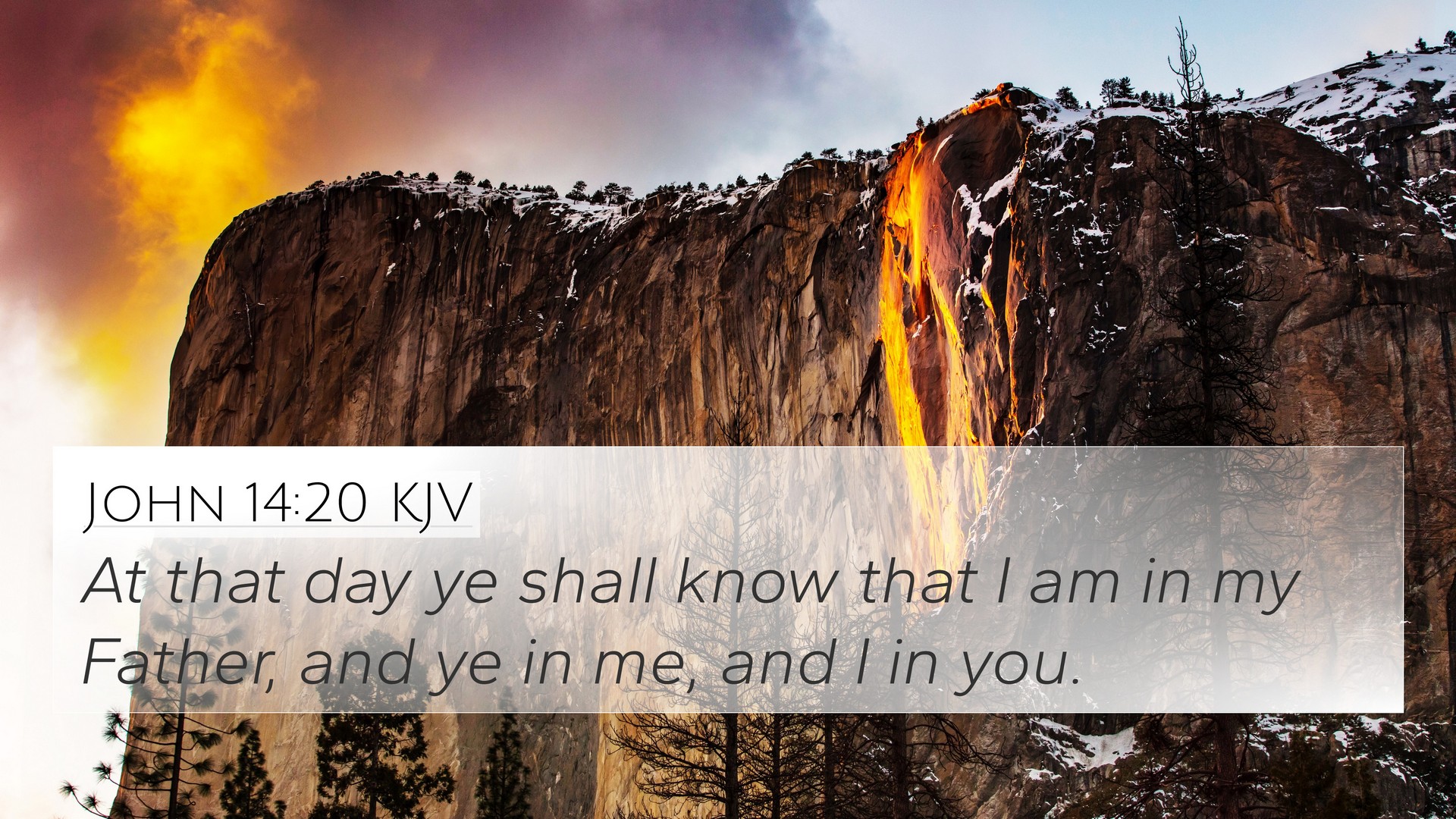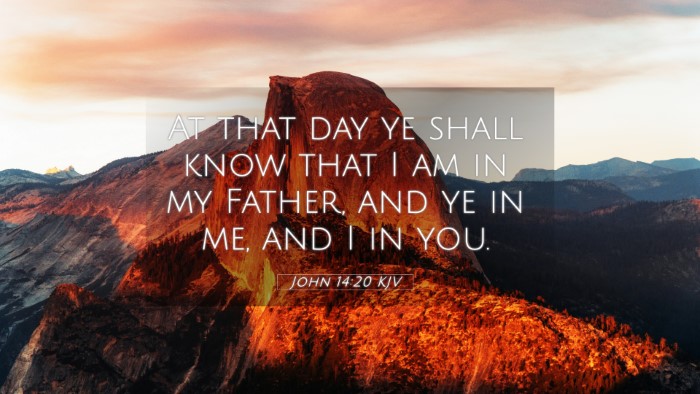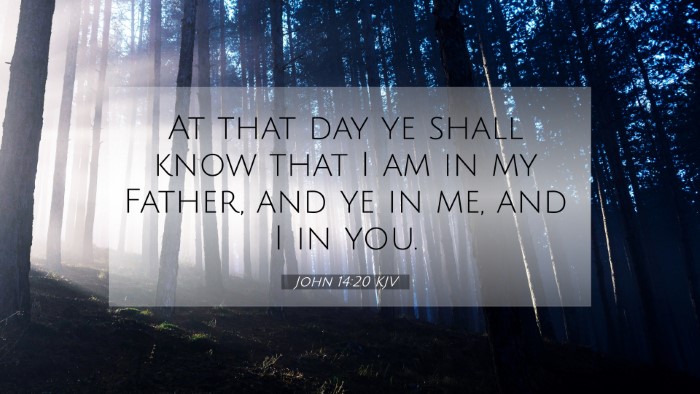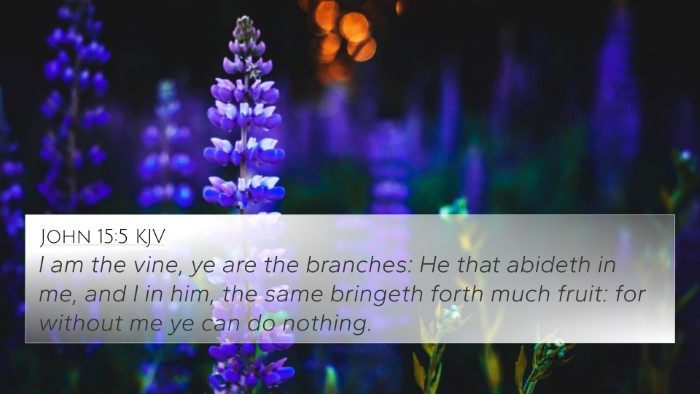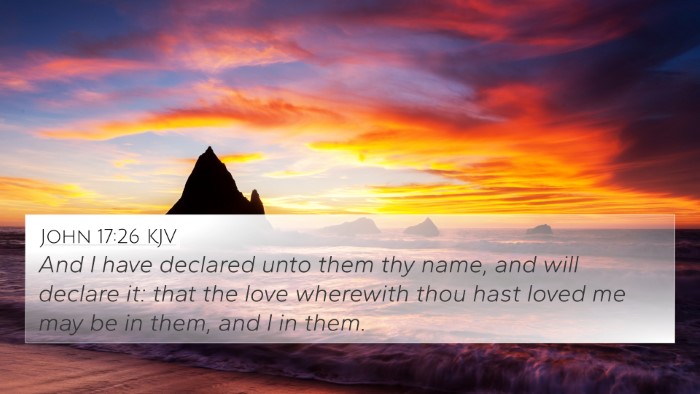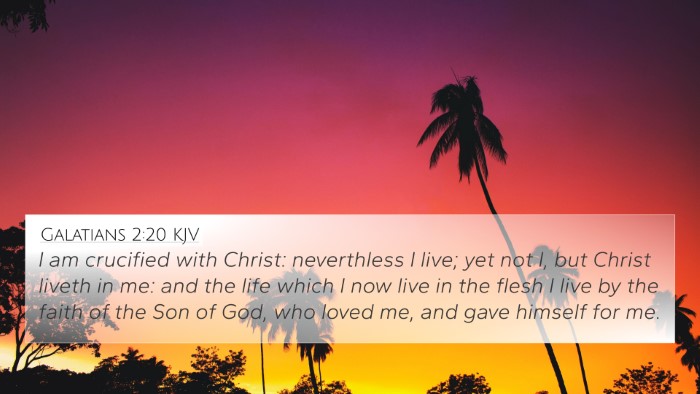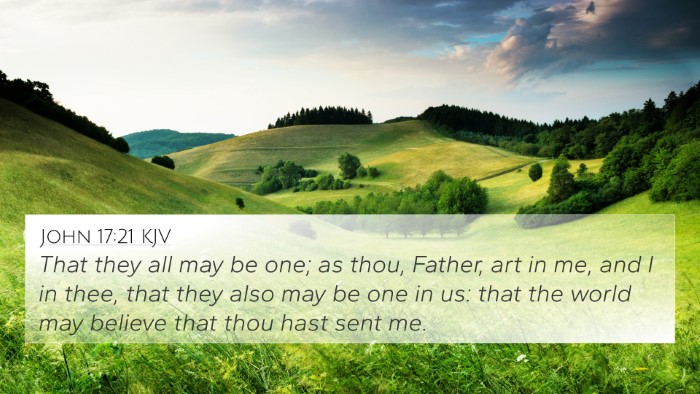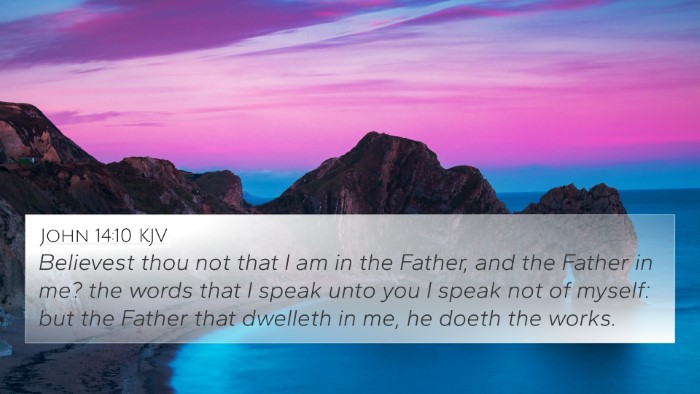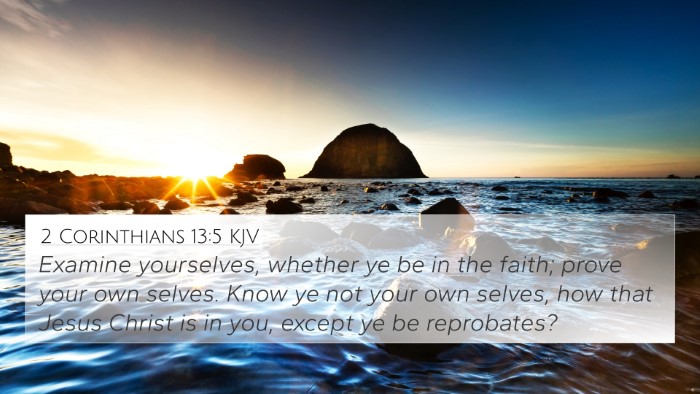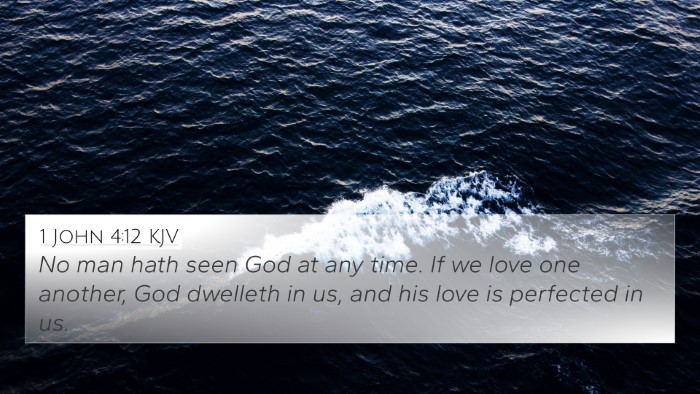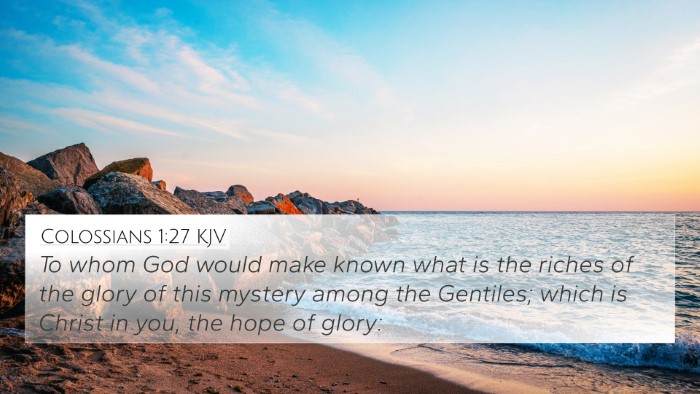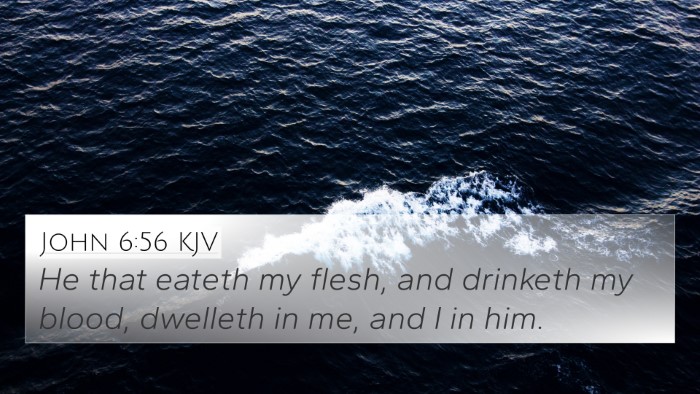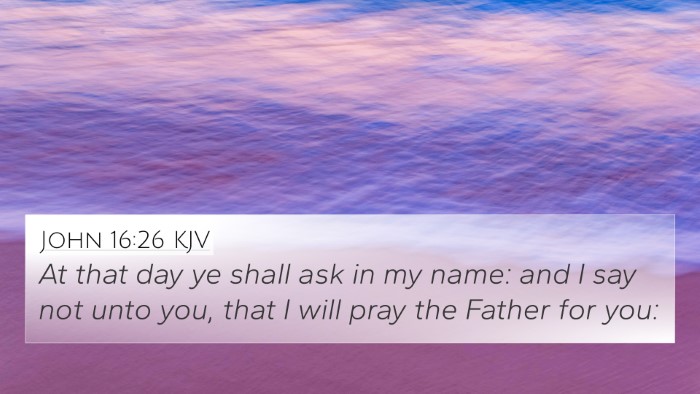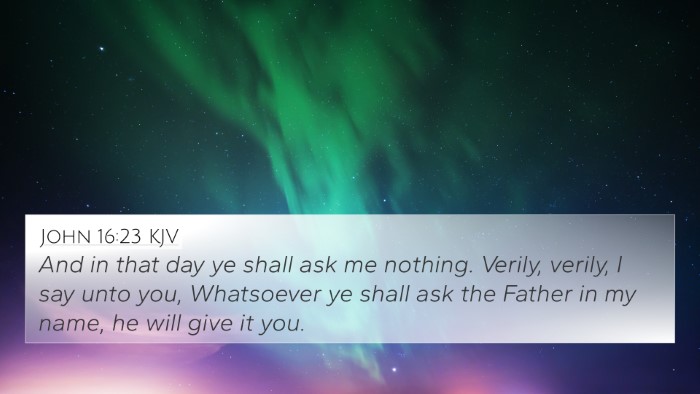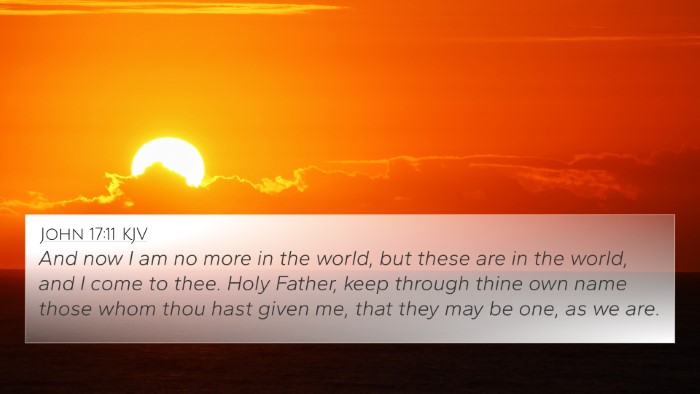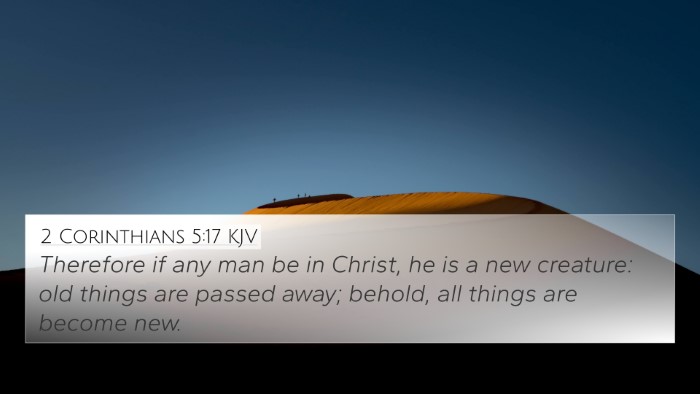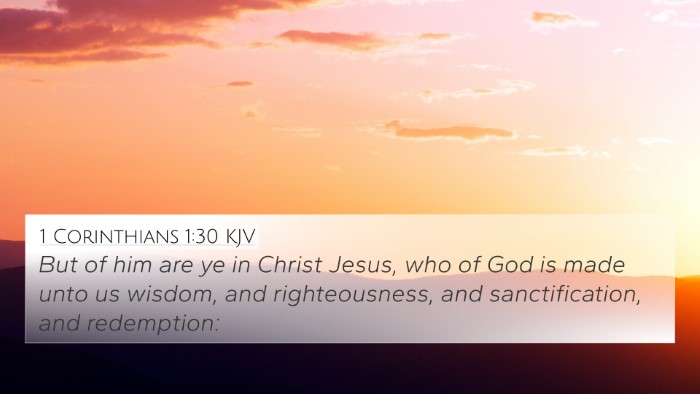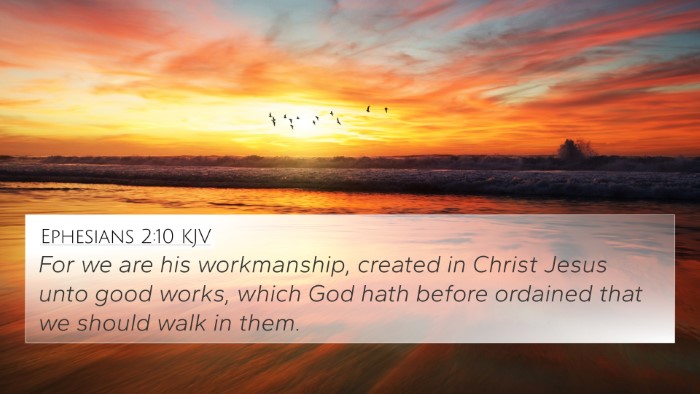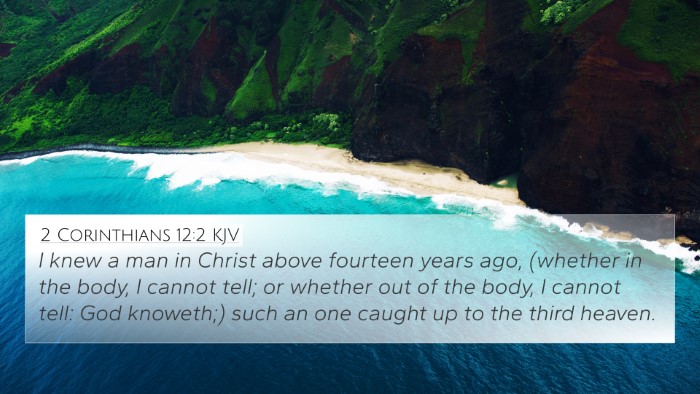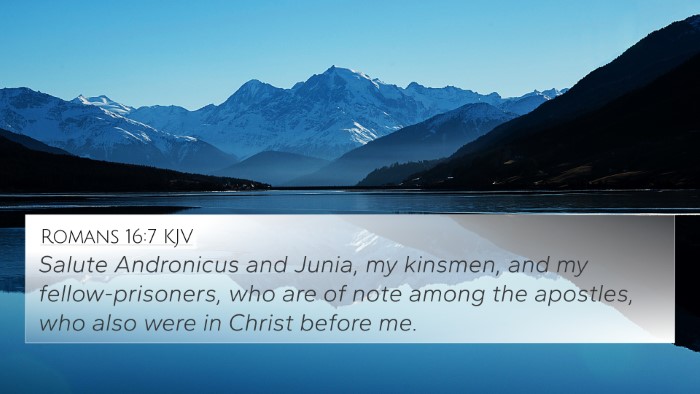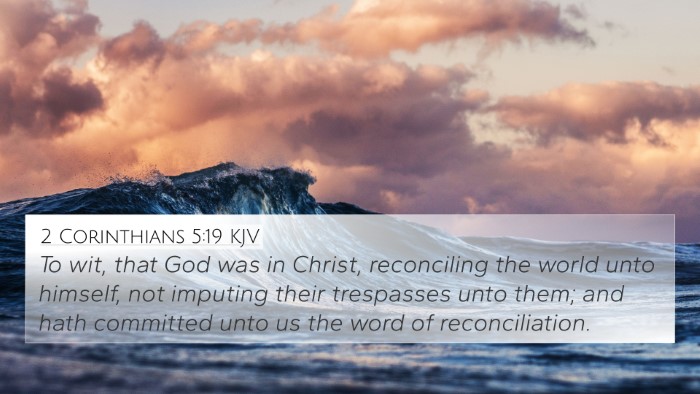Understanding John 14:20
Verse: "In that day you will know that I am in my Father, and you in me, and I in you." (John 14:20, ESV)
Summary of Meaning
John 14:20 is a pivotal verse where Jesus unveils the profound relationship between Himself, the Father, and believers. It signifies the unity and indwelling of Christ in the lives of those who follow Him. Through this verse, the essence of forming a close connection with God is revealed, emphasizing mutual indwelling which symbolizes a divine communion that transcends human understanding.
Commentary Insights
This section summarizes insights from various public domain commentaries.
Matthew Henry
Matthew Henry emphasizes the deep assurance that believers receive through understanding their relationship with Christ. He states that in "that day," the day of the Spirit’s coming, believers will fully comprehend Christ’s presence in their lives. This indicates a transformative experience where the personal relationship with Christ is fully realized, resulting in a profound understanding of divine truth and fellowship with God.
Albert Barnes
Albert Barnes points out the significance of knowing God, which is the ultimate goal for believers. He underscores that the knowledge of "I am in my Father, and you in me, and I in you" invites believers into an intimate experience with the Trinity. According to Barnes, this verse assures believers of Christ’s continuous presence and the active role the Holy Spirit plays in their lives, enriching their spiritual journey.
Adam Clarke
Adam Clarke details the theological implications of this verse, noting that it reflects the mystery of the Trinity and God’s desire for a close relationship with believers. Clarke remarks that this unity is not just a theoretical concept but a practical reality experienced by the faithful. He stresses that Christ's indwelling provides strength, guidance, and comfort, encouraging believers to rely on this relationship for their spiritual growth.
Bible Cross References
This verse has several cross-references that enhance its meaning and provide connections between scripture passages:
- John 17:21-23: Jesus prays for unity among believers, emphasizing the oneness that parallels John 14:20.
- Colossians 1:27: Speaks of Christ in you, the hope of glory, reflecting the indwelling aspect mentioned in John 14:20.
- Romans 8:9: Discusses the Spirit of God dwelling in believers, linking to the concept of divine presence.
- 1 John 4:13: Assures believers of God's presence in them, echoing Christ’s words about being in Him and in the Father.
- Acts 2:4: The coming of the Holy Spirit at Pentecost signifies the fulfillment of Christ’s promise about His presence in believers.
- Galatians 2:20: Paul describes Christ living in him, resonating with the concept of mutual indwelling.
- 2 Corinthians 6:16: Highlights the connection between God’s presence and believers, affirming the themes from John 14:20.
- Hebrews 13:5: God’s promise of never leaving or forsaking His people underscores His continual presence.
- Ephesians 3:17: Emphasizes Christ dwelling in the hearts of believers through faith, tying back to the themes of John 14:20.
- John 15:5: The allegory of the vine and branches further illustrates the connection and unity believers have in Christ.
Thematic Connections
The verse exemplifies several key theological themes within Christianity:
- Unity with Christ: John 14:20 reflects the profound unity believers have with Christ.
- Indwelling Presence: The idea of Christ and the Father dwelling within believers is central to this passage.
- Trinitarian Relationship: The mutual indwelling signifies the relationship between the Father, Son, and Holy Spirit.
- Assurance of Salvation: Understanding of being in Christ brings assurance of salvation and relationship with God.
- Transformation: The transformative nature of this relationship leads to spiritual growth and understanding.
Practical Applications
For believers today, John 14:20 encourages:
- Deepening Relationship: Seek to cultivate a deeper relationship with Christ through prayer and reflection.
- Understanding Community: Embrace the unity with other believers and the divine presence among them.
- Living out Faith: Allow the understanding of Christ’s indwelling to impact one’s actions and interactions.
- Exploration of Scripture: Engage in cross-referencing biblical texts to gain a fuller understanding of related themes.
Conclusion
John 14:20 encapsulates the essence of Christian belief: the intimate relationship between Christ, the Father, and believers. Through insights from respected commentators and cross-references throughout scripture, this verse not only deepens theological understanding but offers a foundation for spiritual growth and assurance in the Christian journey.
